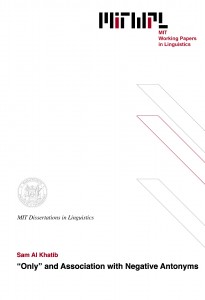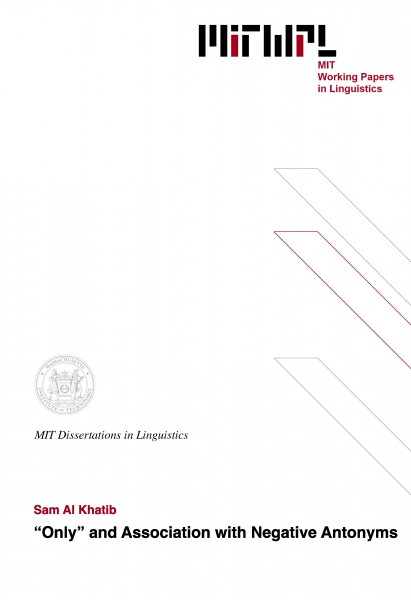"Only" and association with negative antonyms
Sam Al-Khatib, 2014
A problem is detected in how only, traditionally viewed, associates with Negative Quantifiers (NQs) like few, [at most n], and [less than n]. The predicted meanings, which negate the stronger alternatives of the relevant NQs, is shown to be incorrect. The attested meanings are shown to be truth-conditionally equivalent to the result of removing only, hence giving the illusion that only is vacuous. It is further observed that, given an NQ, sentences where only appears to be vacuous become ungrammatical when the NQ is replaced with its positive counterpart. I argue for a view that relates the two phenomena: the ungrammaticality of the only-positive cases explains the unavailability of the predicted meanings in only-negative cases. The attested readings for the negatives, where only appears to be vacuous, is derived from LFs that feature a silent existential quantifier above the NQ.

